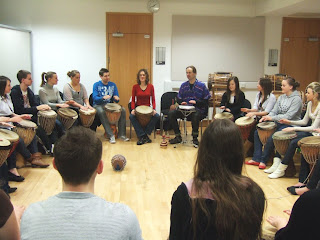In which I sit through a conference session (British version)

I've just come back from the Social History Society's annual conference, which this year took place at the University of Leeds. You can see the twitter feed here: storify. It reminded me again of the wonderfully amusing rant written by Larry Cebula, originally on the Chronicle of Higher Education 's 'conferences and academic travel' forum, and then reworked into a proper article in that paper. Original forum post link Reworked article link Larry's main point was about the tendency for historians to read their papers out loud, word for word, in conference sessions. When social scientists, and indeed scientists, hear that this is standard practice at history conferences, they usually throw their arms up in horror and confusion: 'what? you read out your paper word for word? you don't just extemporise from the powerpoint slides?' Larry also comments on the usual death by powerpoint, or other crummy presentation flaws. However, I don't thin...


